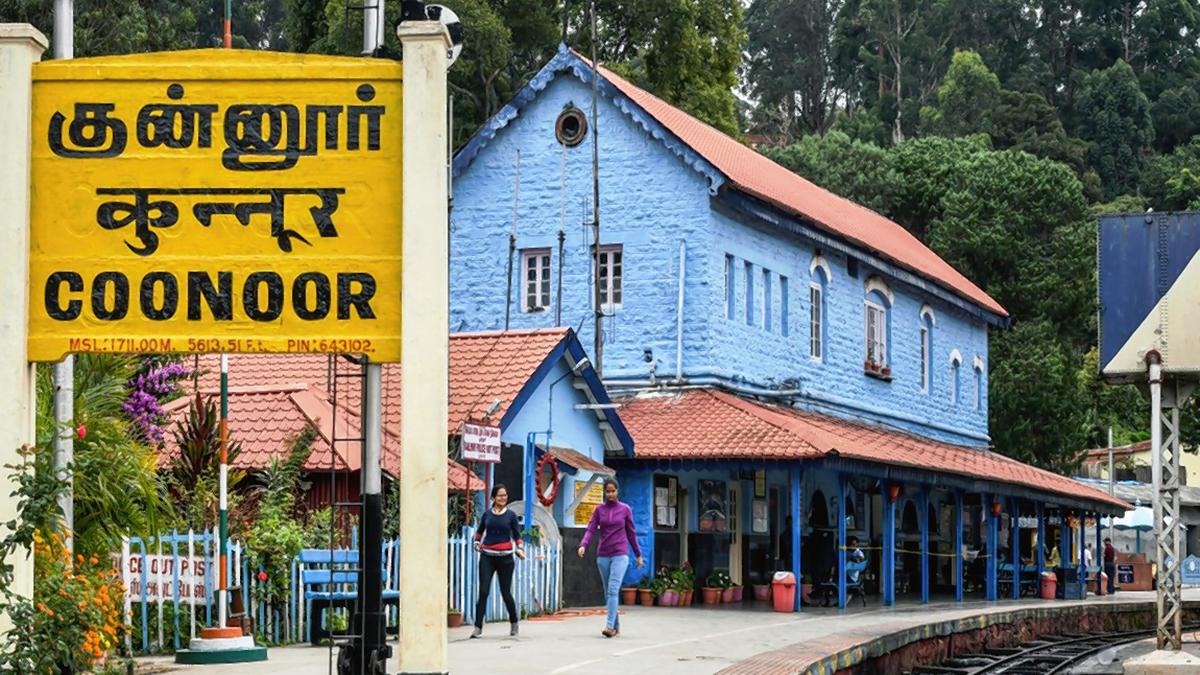
Despite opposition, Southern Railway unveils plans to redevelop heritage railway stations in Nilgiris
The Hindu
Southern Railway to redevelop Udhagamandalam and Coonoor railway stations, providing modern amenities to passengers and tourists. Both stations to be upgraded with wider traffic lanes, pedestrian paths, vehicle parking, landscaping, lighting, modern interiors, waiting halls, toilets, facilities for people with disabilities, passenger info systems, train indication boards, CCTV cameras. Conservationists oppose plan, citing destruction of wetland, risk of flooding. Railways state existing structures will only be renovated, enhancing travel experience and contributing to growth of tourism in The Nilgiris.
Despite stiff opposition to their planned redevelopment of two heritage railway stations along the Nilgiri Mountain Railway (NMR) line, especially the one in Udhagamandalam, the Salem division of Southern Railway has unveiled plans to push ahead with the development.
Both Udhagamandalam and Coonoor railway stations are to be developed emphasising ‘a feel-good approach,’ “to elevate the overall ambience of Udhagamandalam and Coonoor railway stations,” a press release issued on Tuesday said.
As per the release, Udhagamandalam and Coonoor railway stations will be redeveloped under the Amrit Bharat Station Scheme. Udhagamandalam railway station will be redeveloped at a cost of ₹7 crore while Coonoor railway station will be redeveloped at a cost of ₹6.7 crores. The upgradation work will provide modern amenities to passengers and beautify the stations, the press release said.
Planned improvement work includes wider traffic lanes, pedestrian paths, vehicle parking facilities, landscaping, improvements to the façade of the stations, lighting, modernising the interiors of the stations, upgrading waiting halls and toilets and repairing platforms. Facilities for people with disabilities, such as handrails, ramps and low-height water taps are also to be provided, while passenger information systems, train indication boards, coach indication boards and CCTV cameras are also to be installed.
Over the past few weeks, conservationists have voiced strong opposition to the railways’ “redevelopment” of the areas surrounding the Udhagamandalam railway station. The wetland, which hosts a wide array of native flora and fauna has been completely destroyed by the railways, affecting biodiversity and also increasing the risk of flooding across Udhagamandalam town, allege conservationists who have written letters to the Forest Department, the Collector and the Railways to immediately stop the destruction of the wetland and to restore it.
The press release however stated: “The Udagamandalam and Coonoor Railway Stations are part of the Nilgiri Mountain Railway which is a UNESCO World Heritage Site. Nevertheless, these are functional railway stations. So, better and modern amenities have to be provided to the passengers and tourists visiting these places”. It also said that existing structures will only be renovated without “affecting the Heritage Value of the railway station buildings.”













